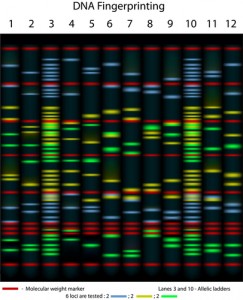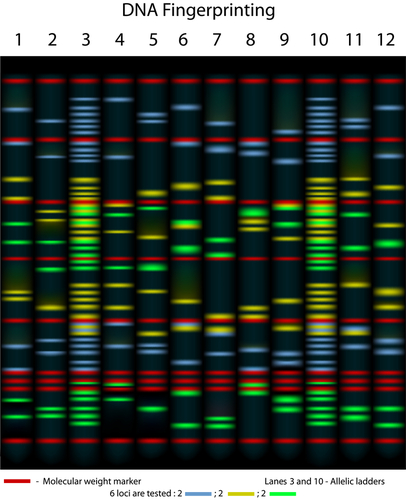 A recent review on inflammatory bowel disease (IBD) entitled “Advances in IBD Genetics” was published in Nature Reviews Gastroenterology & Hepatology by Johan Van Limbergen, M.D., FRCPCH, Ph.D., assistant professor and clinician scientist in the Department of Pediatrics at Dalhousie University and the Division of Pediatric Gastroenterology & Nutrition at IWK Health Centre in Halifax, Nova Scotia, Canada, and colleagues. In this review, the authors emphasized how genetic association studies have contributed to a better understanding of the pathogenesis of IBD by reviewing the most recent research data on crucial genetic markers and cellular pathways implicated in innate immunity, autophagy, lymphocyte differentiation, and chemotaxis processes, which may be promising candidates for patient management and therapeutic strategies.
A recent review on inflammatory bowel disease (IBD) entitled “Advances in IBD Genetics” was published in Nature Reviews Gastroenterology & Hepatology by Johan Van Limbergen, M.D., FRCPCH, Ph.D., assistant professor and clinician scientist in the Department of Pediatrics at Dalhousie University and the Division of Pediatric Gastroenterology & Nutrition at IWK Health Centre in Halifax, Nova Scotia, Canada, and colleagues. In this review, the authors emphasized how genetic association studies have contributed to a better understanding of the pathogenesis of IBD by reviewing the most recent research data on crucial genetic markers and cellular pathways implicated in innate immunity, autophagy, lymphocyte differentiation, and chemotaxis processes, which may be promising candidates for patient management and therapeutic strategies.
The authors highlight the “Immunochip Project,” which is the most recent attempt in finding genetic factors involved in the development of IBD. This project is intended to fine-map genetic elements of the 99 recognized IBD susceptibility loci — a genetic region that gives susceptibility or predisposition to a certain disease — which will provide new information about common genetic factors between IBD and other autoimmune diseases, such as rheumatoid arthritis, psoriasis, ankylosing spondylitis and type 1 diabetes. Moreover, family-based studies on ulcerative colitis (UC) and Crohn’s disease (CD) have provided crucial findings that helped on large-scale genome-wide association studies (GWAS) on the genetic patterns of IBD and assessing how much of the susceptibility to IBD is attributable to genetics. Though, the authors stated that the data from these family studies have been questioned.
Through GWAS and the” Immunochip project,” new family-based IBD loci were identified, IBD1, IBD3 and I5. Within the 163 IBD loci identified, two-thirds are shared between CD and UC diseases. 30 loci specific to Crohn’s disease and 23 loci exclusive to UC were also identified. According with the degree of genetic probability shared by CD and UC, it seems that most of the disease pathways identified play a role in both conditions.
“These findings open up tremendous avenues for targeted development of new therapies in IBD, but might also be relevant to understanding how treatment of one immune-mediated disease can trigger development of another,” wrote the authors. “This new avenue of understanding ‘shared’ susceptibility can be particularly important, as some of the most clinically relevant diseases to IBD clinicians are also showing the strongest enrichment of genetic risk overlap: ankylosing spondylitis, psoriasis, primary immunodeficiencies, and susceptibility to infectious diseases,” added the authors.
Moreover, exome-sequencing studies, sequencing of all the genes that encode for protein in a genome, a region known as an exome, in adult-onset IBD have shown rare mutations in NOD2, as well as in IL23R, PTPN22, CARD9, PRDM1 and NDP52.22, 25. The authors wrote that this will provide the basis for understanding how immune-mediated diseases can share common loci. Thus, research is now focusing on new treatments that target signaling by IL-12–IL-23. The authors added that several studies have also implicated autophagy, decrease in neutrophil chemotaxis (migration) and uncontrolled lymphocyte (white blood cells) margination in the pathogenesis of IBD. Autophagy is the process by which a cell degrades unnecessary or dysfunctional cellular components through the actions of lysosomes in response to metabolic or infectious stimuli. Currently, various autophagy-modulation drugs are being planned for IBD treatment. Also, in the IBD susceptibility loci, many genes responsible for migration of lymphocytes and chemotaxis were found, including integrins and chemokines or chemokine receptors. Already some drugs have been developed that target integrins, like the humanized antibody vedolizumab (Entyvio, Takeda), which targets the alpha 4 beta 7 integrin, evaluated in phase-3 studies for both CD and UC, and the humanized monoclonal antibody etrolizumab, for which phase-1 results have been announced.
Finally, the authors wrote that “International efforts are underway to assess the contribution of the known IBD susceptibility loci in populations of non-European ancestry,” And “In years to come, these advances will hopefully increasingly affect patient care by offering the prospect of prediction of disease course and early intervention with genotype and microbiota-type targets,” added the authors.

